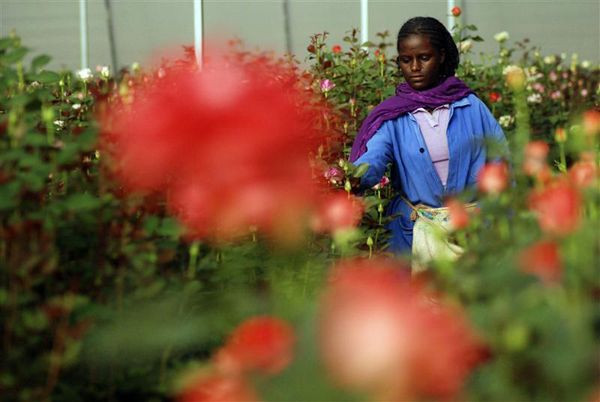Ethiopian Case Study Sheds Light On What Really Holds Back Gender Equality - And National Economies

ADDIS ABABA, Ethiopia -- It's no secret that gender inequality has far-reaching consequences for any society. But when an entire system is inherently biased against women, what can governments do to get at the root of the problem?
Gender inequality doesn't hurt women alone; it can put unnecessary strain on family budgets and leave entire economies hamstrung. One International Monetary Fund study last year found that gender gaps in the labor market can cut gross domestic product per capita by up to 27 percent in certain regions. It cited research suggesting that even in a developed country like the United States, improving female labor force participation could raise national GDP by 5 percent.
There are myriad ways to address gender inequality, including the promotion of girls' education, the advancement of reproductive rights and the establishment of better business regulations to encourage equal pay. But a new study from the World Bank found that lasting progress may require change at a more fundamental level: family law.
“Business laws determine the requirements for a property owner to register the property or own a business; family law determines who can own or control that asset in the first place,” World Bank Lead Economist Mary Hallward-Driemeier and African Development Bank Researcher Ousman Gajigo said in a working paper titled “Strengthening Economic Rights and Women's Occupational Choice.” The paper focused on a case study here in Ethiopia to show how systems of law can be implicitly biased against women and how changing them can have a significant impact on gender equity.
Hallward-Driemeier presented the research to economics experts and university students in Ethiopia's capital city of Addis Ababa this week. The government's efforts to amend family law in 2000, she noted, have led to significant advancement in womens' ability to self-advocate, work for fair wages and own property. This, in turn, benefits entire families and ultimately boosts national economies. “Giving women equal rights has very positive outcomes on many dimensions, including education, employment and health,” Hallward-Driemeier said.
Ethiopia's revamping of family law 14 years ago included three major adjustments: it raised the minimum age of marriage from 15 to 18, it gave women greater say over marital property, and it removed the ability of one spouse to deny the other an opportunity to work outside the home. To be certain that measured outcomes resulted from the family law changes and not from other reforms, the study controlled for outside factors by focusing on areas where the law change had already been implemented, something that wasn't done simultaneously across the country.
“We found that this reform in family code has a strong effect on increasing women's share in occupations that are non-home based, aid work, year-round employment, and those with higher educational requirement,” the researchers said in the report, adding that “the effect of the reform is particularly strong for young, unmarried women,” in large part because the higher marriage age allowed girls to continue their education.
The measured outcomes were significant. Researchers found a 24 percent increase in women performing non-home-based work in areas where the law was applied, as compared to areas where it was not. Age of marriage for women between the ages of 15 and 19 also rose by 0.26 years in implementing areas; in nonimplementing areas, it fell by 0.48 years.
Despite these positive findings, Ethiopia has a long way to go in terms of women's rights and equal participation. Last year's report on from the World Economic Forum ranked Ethiopia 118th out of 136 countries worldwide in terms of gender equality. A National Labor Force Survey in 2005 -- the same year the World Bank study collected its data -- found that women make up 47 percent of Ethiopia's workforce, but 68.5 percent of those are unpaid family workers while another 24.8 percent were informally self-employed.
Equity gaps like those are a common problem in developing countries -- the IMF study reported that of the 865 million women around the world who could be contributing more to their countries' economies, 812 million live in developing nations. That makes Ethiopia makes a telling case study, suggesting that changes in biased national laws -- supplemented by other initiatives to keep the momentum going -- will be essential to advancing gender equity all around the world.
Still, Hallward-Driemeier cautions that equalizing the legal framework is only a first step. “Changing things on the books is great,” she said. “Making sure they happen in practice is something many countries need to be working on.”
© Copyright IBTimes 2024. All rights reserved.





















